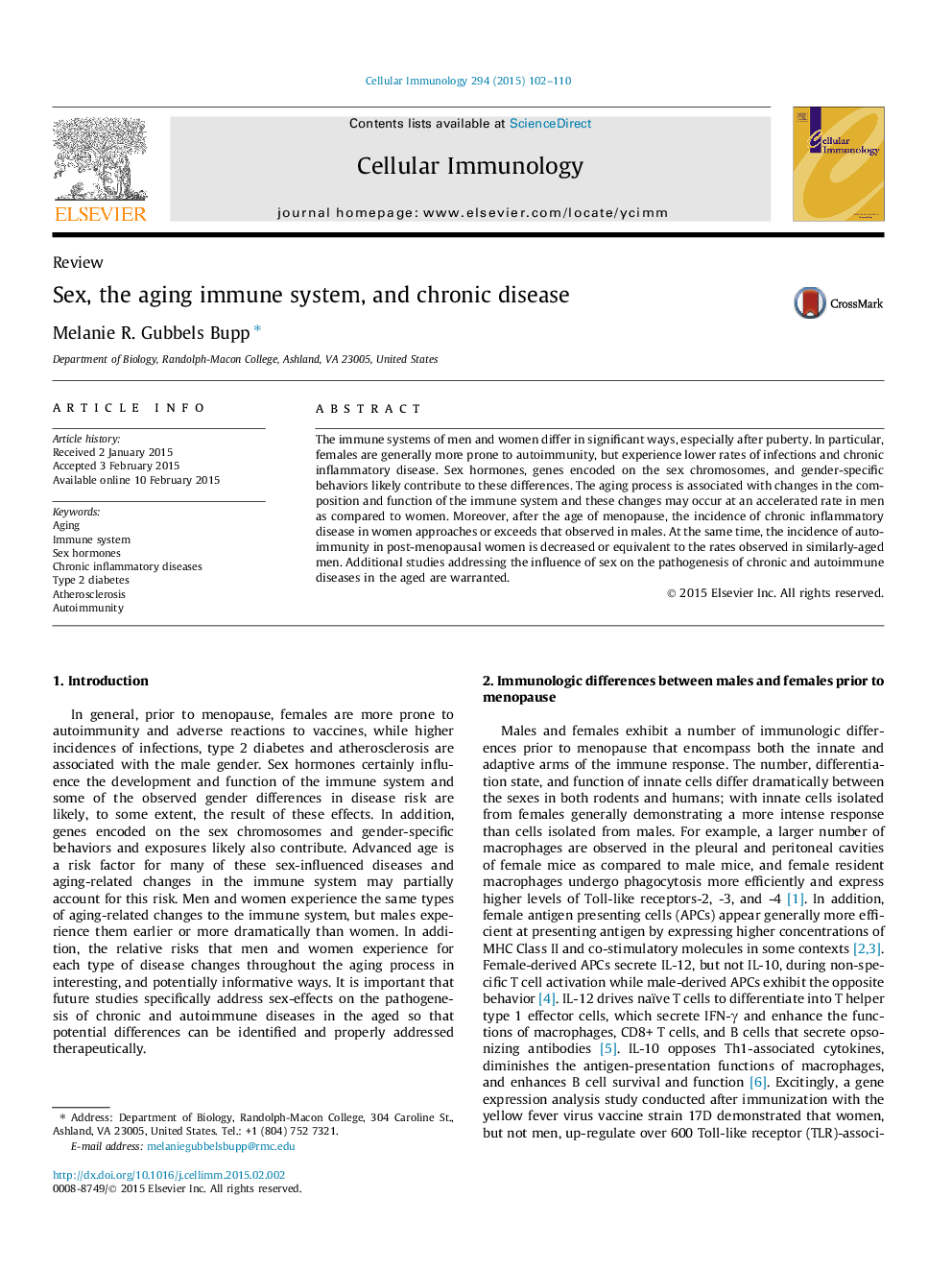| Article ID | Journal | Published Year | Pages | File Type |
|---|---|---|---|---|
| 2166969 | Cellular Immunology | 2015 | 9 Pages |
•Sex hormones, sex-specific genes, and behaviors may influence the immune response.•Aging-related changes to immunity may be accelerated in men as compared to women.•Males develop more chronic inflammatory diseases than women prior to menopause.•Chronic disease incidence in females equals or exceeds male rates after menopause.•Males develop less autoimmune diseases than women prior to menopause but not after.
The immune systems of men and women differ in significant ways, especially after puberty. In particular, females are generally more prone to autoimmunity, but experience lower rates of infections and chronic inflammatory disease. Sex hormones, genes encoded on the sex chromosomes, and gender-specific behaviors likely contribute to these differences. The aging process is associated with changes in the composition and function of the immune system and these changes may occur at an accelerated rate in men as compared to women. Moreover, after the age of menopause, the incidence of chronic inflammatory disease in women approaches or exceeds that observed in males. At the same time, the incidence of autoimmunity in post-menopausal women is decreased or equivalent to the rates observed in similarly-aged men. Additional studies addressing the influence of sex on the pathogenesis of chronic and autoimmune diseases in the aged are warranted.
